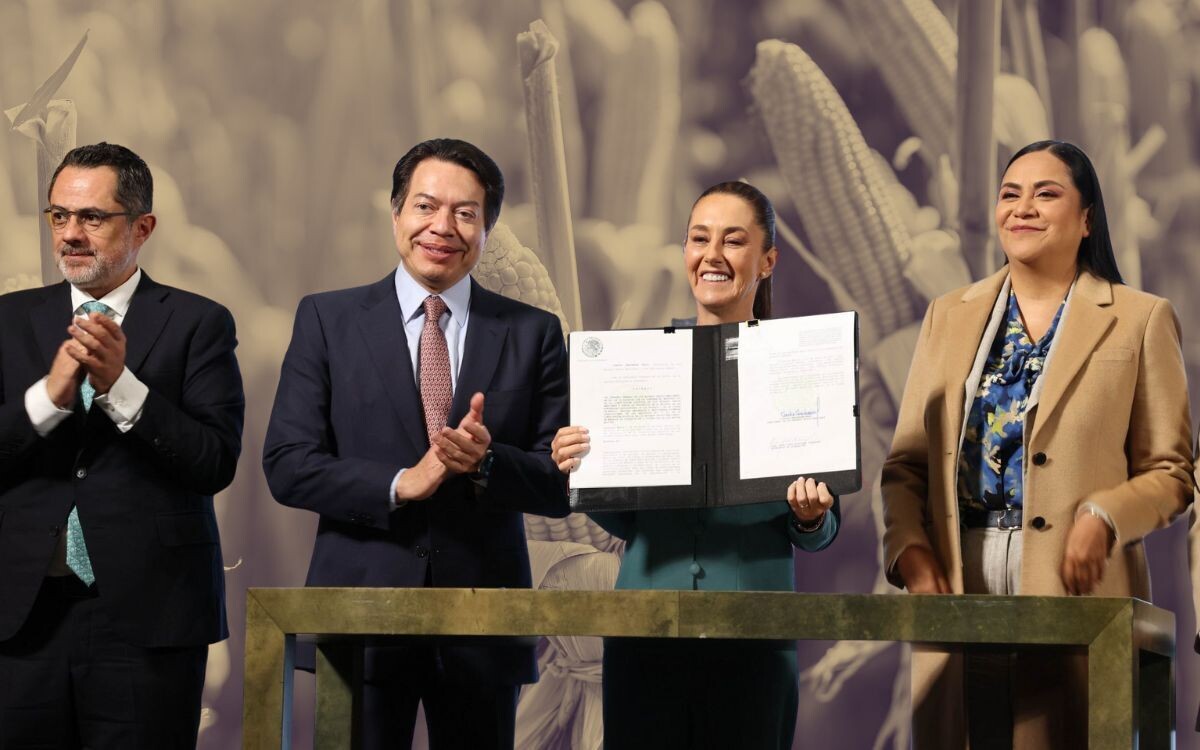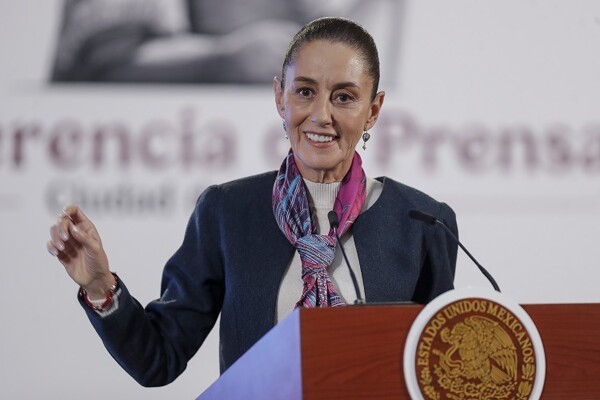
The president of Mexico, Claudia Sheinbaum, announced on Monday a constitutional reform that prohibits the planting of transgenic corn in the country, despite a recent ruling against it under the North America Free Trade Agreement (T-MEC).
In a morning conference, Sheinbaum highlighted that corn is a fundamental element of national identity, constituting a basic food for the Mexican people, as well as the basis for the existence of indigenous and Afro-Mexican communities.
The constitutional reform also establishes the evaluation of any other use of genetically modified corn to ensure biosecurity, health, and the biocultural heritage of Mexico and its population.
In another aspect, the modification of Article 27 of the Constitution promotes the cultural, economic, and health development of farmers, protecting their traditional crops and native seeds. The importance of prioritizing the protection of biodiversity and food sovereignty is emphasized, as well as fostering scientific-humanistic research, innovation, and traditional knowledge.
This reform comes after a final report from the group of T-MEC specialists pointed out last December that the measures taken by Mexico to ban the importation of genetically modified corn did not meet international and scientific standards of the treaty.
Despite the controversy arising from this decision, the Mexican government committed to comply with the ruling, resulting from a dispute initiated by the United States and Canada against a decree from former president Andrés Manuel López Obrador concerning restrictions on glyphosate and transgenic corn in 2023.
Although Mexico is self-sufficient in the production of white corn for human consumption, in 2023 it imported over $3.5 billion in corn from the United States.














